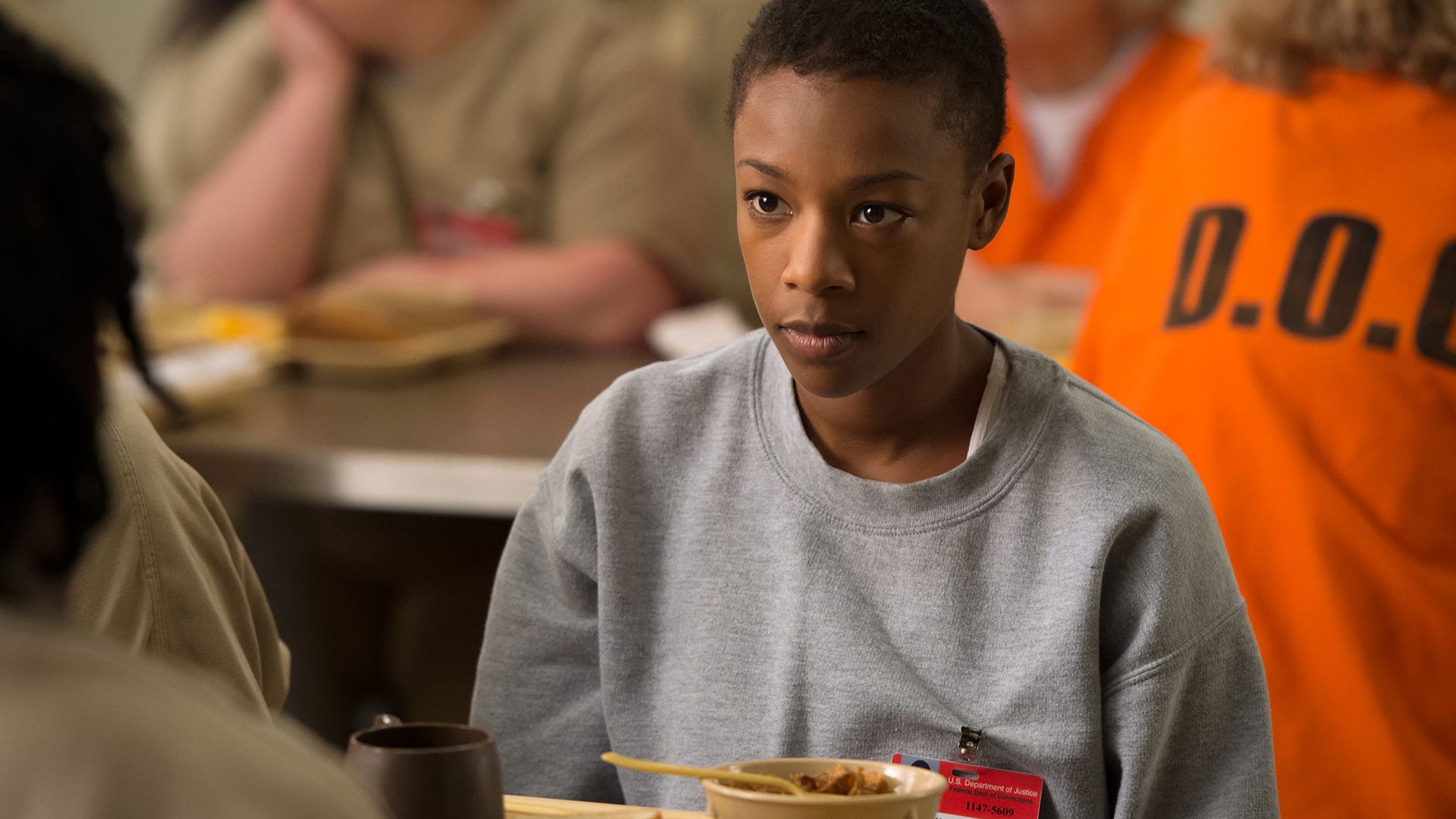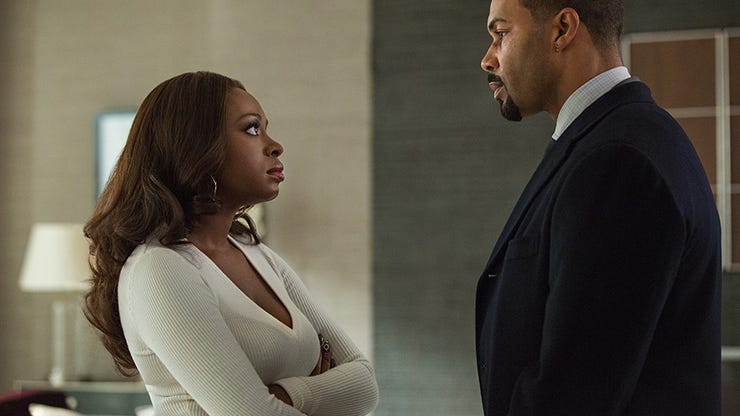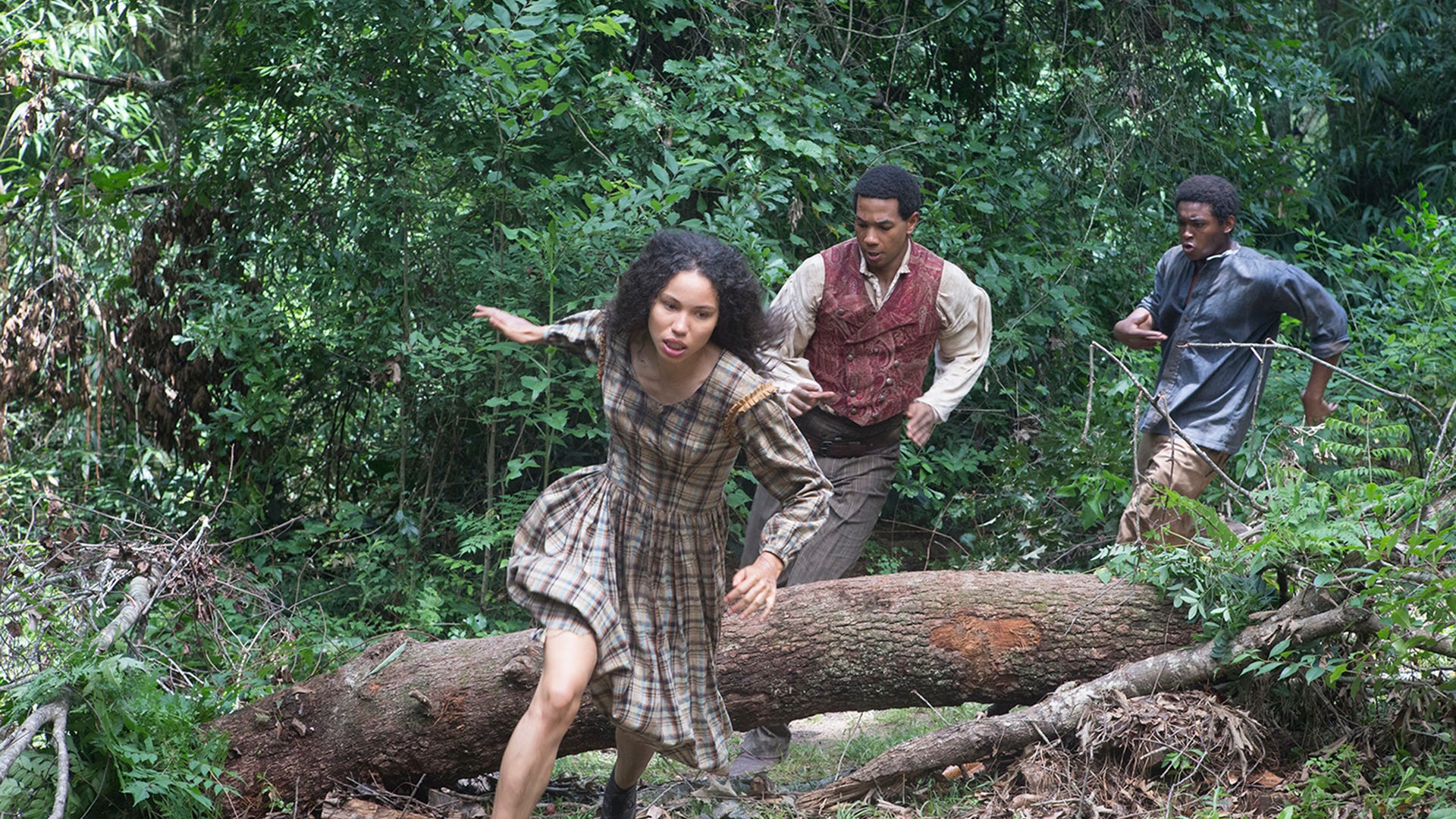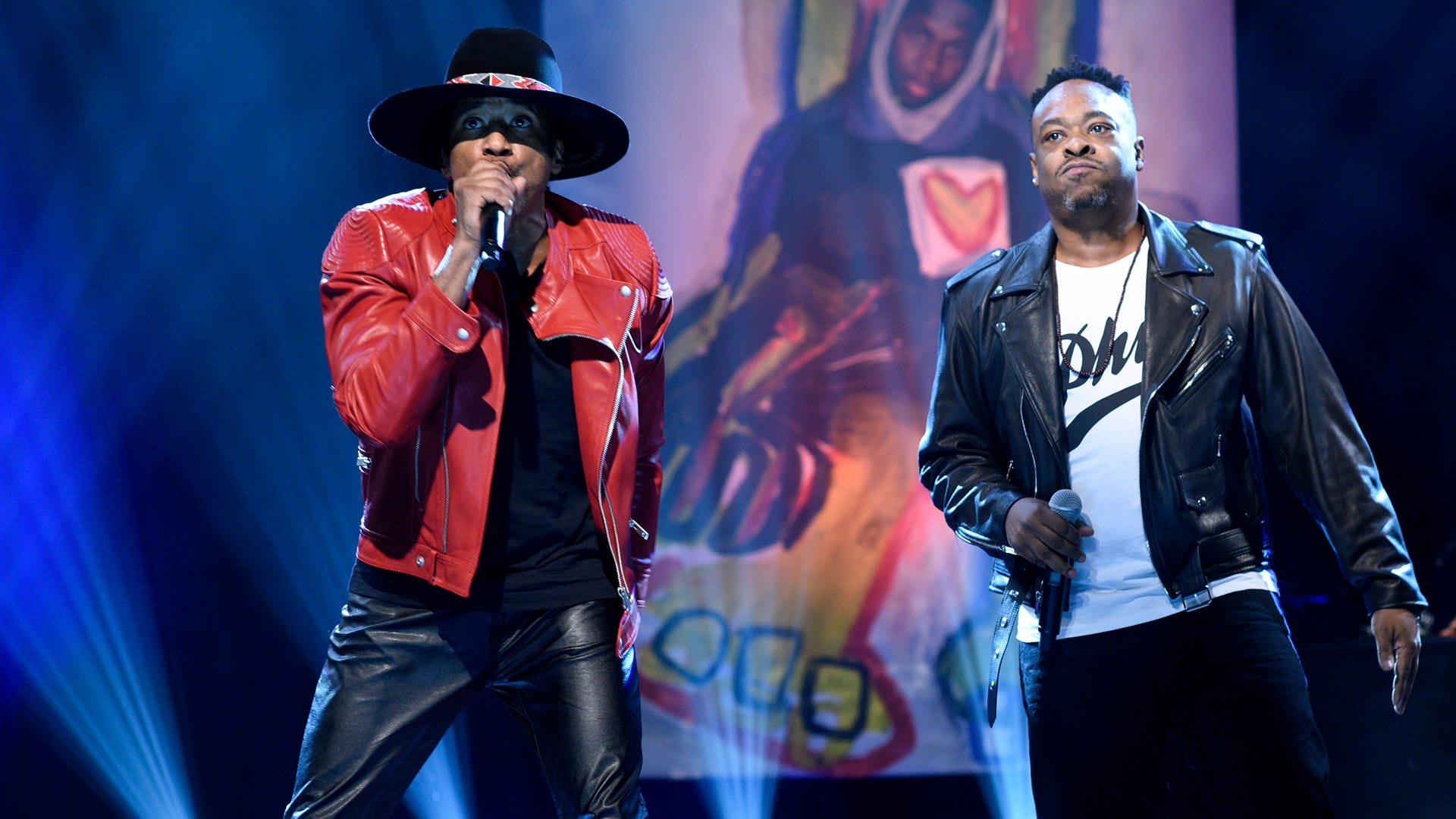Join or Sign In
Sign in to customize your TV listings
By joining TV Guide, you agree to our Terms of Use and acknowledge the data practices in our Privacy Policy.
This Was the Blackest Year in Television
TV finally started to match its viewership, and it was a beautiful thing
Like so many cultural moments do, it began with Beyoncé.
February, Super Bowl 50: The pop star took the biggest stage in TV, leading an army of women dressed as Black Panthers who at one point formed an X on the field, which seemed like (and most likely was) an overt tribute to Malcolm X. It might've been easy to miss the statement amid all the booty shaking, but days later, cries of "Boycott Beyoncé" made it clear she'd had an impact. The months that followed made apparent the significance of the moment: she'd kicked off The Blackest Year in Television.
The 2016-17 season featured a record high percentage (20 percent) of black series regular characters on broadcast networks, according to GLAAD's recent "Where We Are" survey. As a result, we saw the broadest, most varied, provocative portrayals of African-American life on TV ever; with many of them proving to be success stories that illuminated that black narratives and universal appeal aren't mutually exclusive. And while stories from all cultures are important, this season's spate of content focused on African-Americans -- historically shut out of powerful and lucrative engines like TV -- helped push forward the promise of a more inclusive industry.
Black stories mattered in 2016: most notably Ryan Murphy's brilliant The People v O.J. Simpson. What could have simply been a celebrity true crime story was elevated to an unflinching musing on race and justice -- and it won nine Emmys. Orange Is the New Black, UnRealand black-ishall confronted killings of African-Americans by police with widely talked-about storylines: the heartbreaking death of Poussey (Samira Wiley) on OITNB, which paralleled Eric Garner's real-life choking in New York City; the shooting of an innocent black man by police on UnReal sparked conversation about institutional bias, based on the way the story pivoted to a white heroine; and black-ish's lauded episode "Hope" invited America to eavesdrop on a family wrestling with fear, confusion and perplexing questions following a case of police brutality.

Poussey's (Samira Wiley) death on Orange Is the New Black at the hands of a police officer was a pivitol moment in The Blackest Year on TV.
JoJo Whilden/NetflixSometimes though, what mattered was that the shows eschewed issue-driven talk for just showing other aspects of African-American life. On Loosely Exactly Nicole, we saw a proud, loud and hilarious overweight millennial with a high sex drive and a stalled career bumble her way through Hollywood and hookups. The women of HBO's Insecurewere a little more grown up but also grappling with universal issues: hero Issa (Issa Rae) was a ball of confusion and shaky decision-making, while the corporate Molly (Yvonne Orji) illustrated what it looked like to be a winner in the office and a mess everywhere else.
Add them to the the ladies of OWN's Queen Sugar, the formidable Tasha (Naturi Naughton) on Power and Viola Davis on How to Get Away with Murder, and there's now an unprecedented spectrum of black women: messy, fierce, struggling, thriving, screwing up and even homicidal. Contrast that with 2013, when Kerry Washington became the first black woman in almost 40 years to lead a primetime drama, with Scandal.

Naturi Naughton as Tasha and Omari Hardwick as James St. Patrick made us rethink archetypes on Power.
Jessica Miglio/StarzElsewhere, old tropes got challenged in new ways. Power continued to complicate the life of its anti-hero drug dealer James St. Patrick (Omari Hardwick) -- a cunning, murdering, savvy businessman who is also a sensitive father seeking redemption. OnThe Get Down, forgotten poor black and Latino youth who created hip-hop were reframed as creative visionaries fighting to be seen and heard. In Netflix and Marvel's Luke Cage, we got varying points of view about how black people regard notions of justice in their own communities, and heard mixed feelings about the N-word -- all while being a phenomenally entertaining superhero story.
Even slavery got flipped on its head as Underground, a fast-paced action-escape thriller, showed the cunning and creativity of people on the run for their lives. Stories we thought we knew, or had heard before, took on a fresh perspective.

Underground turned a slavery story into an action-thriller.
Skip Bolen/Sony Pictures TelevisionWhat's perhaps even more important to note is that these weren't just creative successes, they were financial and ratings successes as well, proving that underserved audiences will come out to watch stories that resonate; and will bring other viewers with them.
Underground pushed WGN America's ratings up some 1000 percent over the previous year. Atlanta, FX's existential hip-hop dramedy debuted as the most-watched basic cable comedy since Inside Amy Schumer. And Power set viewership records at Starz when Season 3 premiered -- more than doubling the viewership of the previous lead, Outlander, and giving Starz leverage to battle HBO and other prestige networks.

Q-Tip and Jarobi White of A Tribe Called Quest performed urgent, searing protest music on Saturday Night Live days after the shocking presidential election.
Will Heath/NBCTowards the end of The Blackest Year in TV, Saturday Night Livefeatured Dave Chappelle and A Tribe Called Quest, mere days after the shocking end of the presidential election. Chappelle opened the show with a scathing yet surprisingly hopeful monologue. ATCQ performed urgent and fresh protest music, including the fiery "We the People" -- the chorus of which shouted that blacks, Mexicans, the poor, Muslims and gays were despised in America.
It was electric, bold and for people of many backgrounds, a unifying statement that accurately captured emotions they were too numb to articulate. Tribe ended by showing its members in a big long group hug -- a rare glimpse at black men in a state of vulnerability, solidarity and support. It was beautiful, very black and not for nothing, as it was SNL's highest-rated show in years.
The road ahead, though, is murky. Despite all this progress, some 90 percent of the people running broadcast network TV shows this year were white -- a number tragically disconnected with the country's makeup and consumer tastes. Post-election, "inclusion" is no longer a buzzword. It's a challenge to pick a side and fight.
But with creators like Donald Glover of Atlanta -- a show staffed entirely with first-time black writers -- and Courtney Kemp of Power vocal about getting people of color jobs in TV, change is already underway, whether the new status quo is in favor or not. Heading into a time of massive economic, social and cultural uncertainty, strong voices like theirs will prove to be more vital than ever, and we as viewers (and critics) need to continue to support them however we can.
As the refrain went on Luke Cage, "Always forward." In 2017, we need to push for more creators of varied cultures in front and behind the camera, and in positions in networks where the big decisions can be made. It's not just smart creatively, it works financially. Let's eclipse 2016, and make next year The Blackest Year in TV, ever.
It's a big ask, but we can do it. Especially when we've got Beyoncé.
